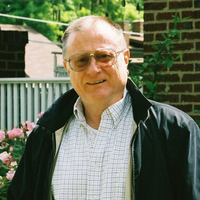A Trick My Father Learned in Prison
I’m not saying my father hated the English, God forbid. If he were still alive, he’d hate to hear me say that. He’d correct me right away and say he didn’t hate the English. Truth be told, he despised the English, especially the Black and Tans. They were the troops the English sent to take over Ireland before, during and after the Troubles in 1916. That was the time when the Irish first fought seriously for their independence.
My father would tell me often about what the Black and Tans did to him in 1920 at age 16 when he was captured while running guns for the IRA through marshes in rural Ireland. He knew the marshes in County Kerry very well because he was reared there as a farm boy. The IRA thought a boy like him would never get caught. But a boy carrying guns was not a common sight in the marshes of County Kerry.
The Black and Tans put him in a cell with a dirt floor. He sat on that dirt for a month after they broke both his legs with rifle butts. They were in no hurry to summon a doctor.
A cellmate gave him a pad of paper and he would sit on the dirt writing his name backwards with his left hand until his signature matched the normal one written with his right hand.
Decades later in America, after he had been expelled from Ireland and had married my mother and settled down with a job in Chicago, I heard many stories not only about his life in a jail cell but his life milking cows and goats on a dairy farm as a young boy. He had to do that if he wanted his oatmeal for breakfast.
I was in grammar school in the Forties when I heard a lot from my father about the Irish seeking their independence. His stories were a lot better, I thought, then paying 25 cents on Saturday afternoon to see a Western with Gene Autry at the local movie house, even if the movie was followed by 25 color cartoons.
One day after school I had some friends over at the house. My father, a man of many moods not identified yet as PTSD, took a pad of paper and with a pen in each hand signed his name forward with one hand and backward with the other simultaneously. He then held the pad up to the long mirror in the hallway and, of course, the signatures were identical. My friends and I, crowded around him, were very young but even if we had been adults we would still have been amazed.
After my friends went home, I asked my father how he learned to do that and he told me about the Black and Tans, their gun butts and that pad of paper the cellmate gave him. Rather than write letters to his family and upset them by letting them know he was in prison, he practiced writing his signature backwards with his left hand. This was one of a number of odd things that my father had mastered, all of them interesting to a child, but not worth going into at the moment or I’d be typing for a long time.
Eventually I grew up, went to college, married and moved to another city and my father wanted to come and visit us and see his first grandson. Fine with me, I thought. I just hoped his affable mood would last and not disappear during the visit. I didn’t want to impose on him the nighttime crying of an infant since he had lived through that with me as a colicky child and my mother said he didn’t weather it well, having to get up early for work the next morning. So I decided to get him a room at a nice hotel. However, I picked the wrong one.
I made the mistake of making a reservation for him at the Henry VIII Hotel, named after the English monarch. I can still hear my father yelling when I mentioned the Henry VIII Hotel over the phone.
Indeed the Henry VIII was a nice hotel decorated in an English style that would truly have enraged my father. It was torn down not long after he died. But he had never been a guest at the Henry VIII, having stayed at another hotel free of any English taint. And his visit went well, all things considered. No outbursts or commotion.
Had he lived long enough, however, my father probably would have been far more upset to learn years later that his grandson, after graduating with honors from the University of Chicago, went to England to study at Oxford as a Rhodes Scholar.
Tuition, room and board and books were free but Oxford, of course, was in England. And it was England that had sent the Black and Tans to Ireland and it was the Black and Tans who had broken my father’s legs.
Sometimes I think about what it might have been like had he lived long enough to learn that my son had won that scholarship. I imagine calling him to tell him the news. And suddenly I can hear him yelling louder than when I told him about the Henry VIII Hotel. This time he would sound like a muezzin in a minaret on top of a mosque. Only he wouldn’t be summoning the faithful to prayers.
Donal Mahoney

